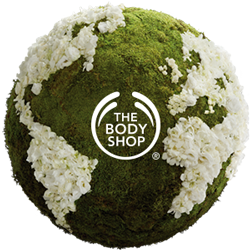As news of social unrest, rampant climate change and discrimination continues to proliferate in news media across the world (e.g. police brutality in the US, Trump’s mass discrimination), it appears that now, more than ever, ethics is finding itself to be a particularly emphasized topic within the global community. People are now beginning to realize that should we continue to act with no unity, thought for others nor the environment, the earth will continue to go down its downward spiral, and perish, taking humanity along with it.
This is why I believe that the incorporation of ethics in business is the only path forward. I disagree with Friedman in the notion that utilizing a portion of a business’s finances towards an ethical cause such as sustainability (e.g. using biodegradable wrappers) result in increased costs from either the shareholders, employees, or customers and argue that it can actually result in profits and overall benefit in the long run. As Freeman states, an ideal business takes into account the suppliers, stakeholders, employees and community. When it focuses only on financiers and profit, the business is in fact slowly killing itself as it would result in disarray internally, and its reputation to be tainted as well. For example, in this news article: http://www.theglobeandmail.com/report-on-business/international-business/turing-volkswagen-cases-show-firms-still-willing-to-roll-ethical-dice/article26549560/, we see what happens when a company puts profits before its consumers and ethics. Evidently, putting a company’s values and ethics at risk will also put its reputation at risk, which in turn will result in lost profits.

For example, I believe the Body Shop is an excellent example of a current business which actively promotes its ethical values and maintains them effectively as well. Within every store and product, we can see its values clearly outlined: the company strives to use organic, sustainable and ethically attained materials in all of its products. The store’s successes as an ethical business contradicts what Friedman was arguing in his piece, and I believe it is due to a couple reasons. Firstly, the Body Shop has excellent marketing, which means at a glance, you are able to see what values the company stands for and where it really shines. Furthermore, the Body Shop has a heavy emphasis on ethical values such as sustainable and ethical materials, which I believe is one of the major selling-points of the company, not necessarily the quality of the products. Thus, we see that the Body Shop’s success is due to it excellently marketing to a growing niche: Those whom are globally conscious and environmentally oriented. This is where I believe Friedman went wrong, because nowadays as more people become aware of the world’s issues, businesses which have ethical principles are becoming evermore so prestigious, praised and profitable, making ethics a valuable venture in the global market.